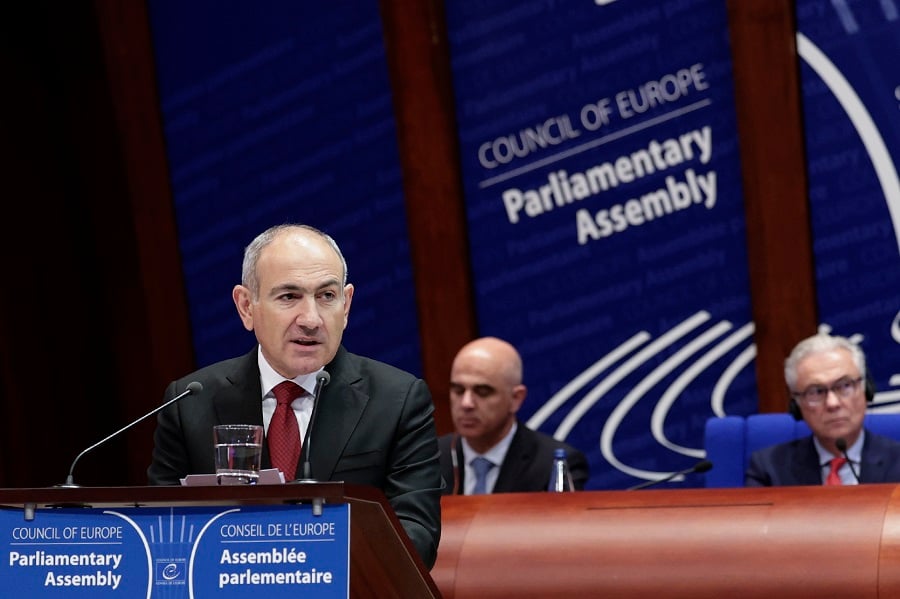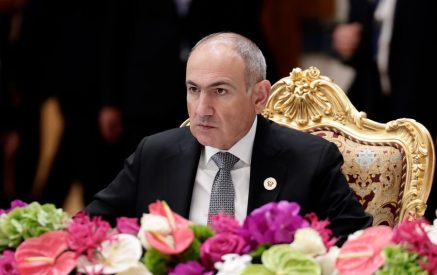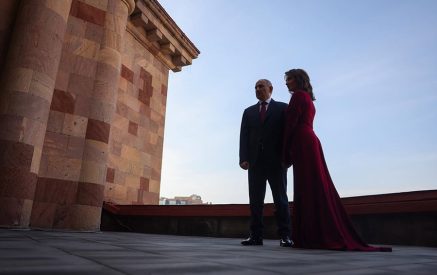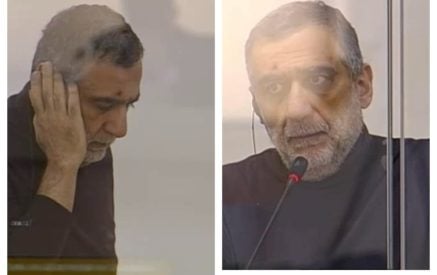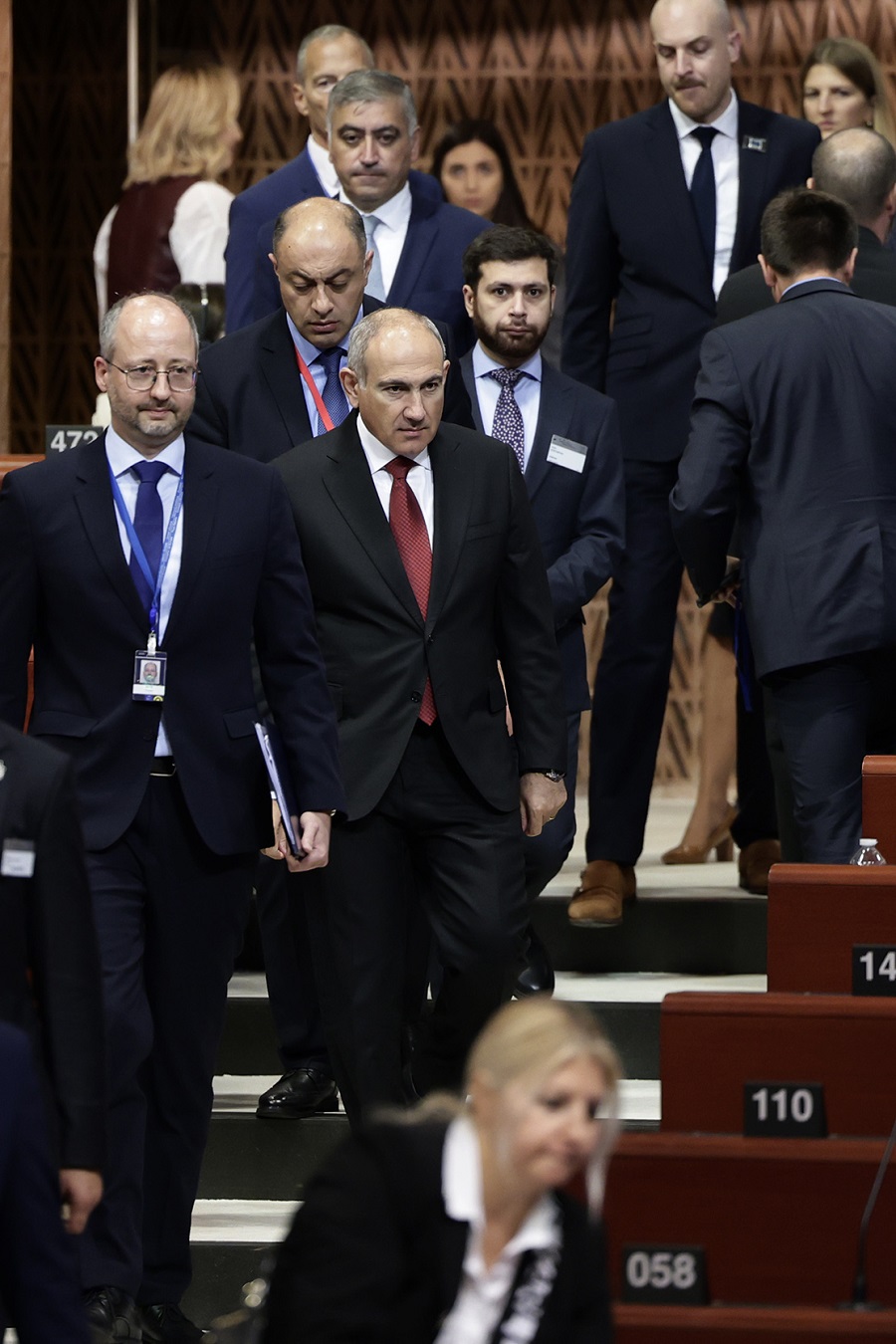“Dear President of the Parliamentary Assembly of the Council of Europe,
Dear Secretary General,
Dear Parliamentarians, Ambassadors, Ladies and Gentlemen:
Allow me to express my gratitude for this opportunity to address the Parliamentary Assembly of such a reputable organization as the Council of Europe.
In the Republic of Armenia, the Council of Europe and the PACE are accepted and perceived as guardians and defenders of democracy and human rights.
PACE resolutions are a constant companion in Armenia’s difficult journey of democracy. In many cases, people in Armenia have waited impatiently and tensely for their adoption, considering that domestic hopes with regard to election fraud, bans on assemblies, the release of political prisoners, and justice have been exhausted.
Read also
The European Court of Human Rights recently adopted a very important judgment in the case of the victims of March 1, 2008, finding a violation of their right to life by the state, and the ineffectiveness of the investigation into the circumstances of their deaths.
In recent years, the court has adopted important judgments regarding politicians sentenced to imprisonment as a result of March 1, 2008.
On March 1, 2008, I was in the ranks of the opposition, then I was forced to go into hiding, then I voluntarily turned myself in, after which I was arrested and sentenced to seven years in prison. All that time, I personally was anxiously awaiting news from PACE and the ECHtR.
The speeches and resolutions adopted in PACE gave hope and strength to us, those fighting for democracy in Armenia. I will never forget the day when the High Commissioner for Human Rights of the Council of Europe visited me in prison.
Finally, in 2011, I was released from prison thanks to the persistence of the Council of Europe, PACE, and the European Court of Human Rights, having spent one year and 11 months in prison instead of 7 years.
In May 2018, when I became the Prime Minister of the Republic of Armenia as a result of the People’s, non-violent, Velvet Revolution in Armenia, the European Court of Human Rights had not yet adopted a decision in my case, and I continued to anxiously await the decision of the court, to which I had sent my application back in 2010.
In the position of Prime Minister, the ECHtR decision took on greater importance for me, because had the ECHtR decided that the domestic judgment against me in Armenia in 2009 had been unfair, it would have provided such a basis for reviewing my case that no one would be able to say that it was because of my status as Prime Minister that such a decision was made, and justice and fairness would have been legitimate.
And fortunately, that is how it turned out. The ECHtR decision made my subsequent acquittal in the Armenian court completely legitimate and unchallengeable. In the same way, many other former political prisoners in Armenia were also acquitted.
I say all this not only or not so much to express my gratitude, but to show that the Council of Europe and its structures are an organic continuation of the state institutions of Armenia. I and many people do not consider the Council of Europe and its institutions to be a foreign organization.
The Council of Europe is our organization, one of the most important institutions of our democracy, because we are its full members. So are the PACE, the European Court of Human Rights, and the Venice Commission.
Our membership in the Council of Europe gives us greater confidence in implementing democratic reforms, because we know that if we make a mistake, there is an organization close to us, our organizaiton, that will alert it to us, help us find the right direction on the path of democracy, which is unfortunately becoming increasingly more difficult.
The Council of Europe is our home, where we find our address as a democratic state. Being a small country, we become part of a large, beautiful and bright family here, where the human being is the most important value, where the human being is the end, rather not the means.
This family is important to us.
The Council of Europe is a place where we can share the joy of our successes and talk about our failures, listen to the stories of others’ successes in order to be inspired by them, and the stories of others’ failures in order not to repeat them.
Dear President of the Parliamentary Assembly of the Council of Europe,
Dear Secretary General,
Dear parliamentarians, ambassadors, ladies and gentlemen:
I have brought with me to PACE stories of both success and failure, although sometimes these stories are closely intertwined and it is often difficult to find the line where success ends and failure begins.
I am happy and proud to report to PACE that since the People’s, non-violent, Velvet Revolution of 2018, the authorities in Armenia have not even attempted to rig any elections.
During this time, two parliamentary elections and local government elections have been held in all the communities of Armenia, in some places even twice.
The 2018 and 2021 national parliamentary elections were assessed by the international community as free, competitive, and in line with democratic standards, which was essentially unprecedented in our history. There were no protests related to the results of any local government elections; opposition parties won in a number of communities, which was essentially impossible before the 2018 Revolution.
The notion of a ‘post-electoral process’ has disappeared from Armenian political life, while before the People’s, non-violent, velvet revolution of 2018, it was the most frequently used term in Armenian political life.
People pinned their hopes for change on post-electoral processes because they knew that the elections would be rigged by the authorities, which would create a reason for post-election processes. This was the case in almost all elections held before 2018, but that is already history and, to speak frankly, quite an old story already.
But this does not mean that electoral democracy in our country does not have problems.
The practice of voter bribery continues to be used by some forces in Armenia.
The problem here is not only that it takes a lot of effort from law enforcement to uncover such cases, but also that practical mechanisms to determine the extent of the influence of voter bribery on the election results are either absent or uncertain. As a result, there are no practical mechanisms to exclude the forces that distributed voter bribes from the political and electoral process, and on the other hand, the implementation of such mechanisms can be interpreted as an attempt to make the elections controllable, although the presence of those who received mandates through voter bribery in parliament or local government bodies is perceived as a vulnerability of democracy, when the tool of democracy, elections, is used against democracy by using money.
Added to this is disinformation, and in the case of Armenia, it is even more problematic because the majority of news resources are under the control of forces ousted from power in the 2018 Revolution and currently acting as opposition, who spend part of their illegally accumulated wealth on spreading disinformation in order to save that wealth from the process of confiscating ill-gained assets.
In many cases, they receive support from their like-minded foreign powers.
Taking practical measures against this disinformation campaign can be interpreted as an attempt to restrict freedom of speech, and the lack of action is seen as a weakness of democracy, a lack of protection, when the tools of democracy–freedom of speech and the Internet, is used against democracy through the use of money.
I could go on and on enumerating such situations, and these are problems, some of which exist not only in Armenia.
Hybrid attacks against democracy are becoming a key challenge for democratic countries.
We in Armenia position ourselves towards such situations primarily according to the principle of doing no harm to democracy, while understanding that many of our compatriots view this as weakness or inaction.
Hybrid attacks and the lack of effective countermeasures discredit democracy. But all the same, there are no country-specific solutions here, and the Council of Europe, the Parliamentary Assembly of the Council of Europe are the institutions where we should discuss this issue, bring together our actions, and understand how to further strengthen democracy.
In any case, our perception is that the Republic of Armenia should work with the global democratic community on this matter, in tandem with it, and we will do so. Democracy is extremely precious and important to us, and we cannot resemble those that use the tools of democracy to harm democracy.
I mean, much more dangerous is the possible practice of damaging democracy under the slogan of defending democracy.
But, distinguished Ladies and Gentlemen, let me confidently declare: in spite of all this, democracy in Armenia is in reliable hands. And in this case, we are not talking about the Government, not about the ruling majority, not about civil society, about the people, the citizens of the Republic of Armenia.
The said tools aimed at undermining democracy, all of these tools were used in perhaps the most vulnerable period for democracy in Armenia, in the immediate aftermath of the 44-day war of 2020, when a profound political crisis emerged in Armenia.
Moreover, in a sense, the 44-day war was part of a hybrid war that targeted Armenia’s statehood, Armenia’s independence.
But you know, it was democracy that literally saved Armenia’s statehood and independence. The war and the disinformation accompanying it were the tools that the anti-democratic forces used to demand that we simply hand the power over to them.
We said that we cannot hand over to anyone the power we received from the people, but can only return it to the people. In April 2021, I resigned, as a result, the country’s parliament was dissolved, and we had early parliamentary elections on the backdrop of escalations on the border, the occupation of Armenia’s sovereign territories, and information terrorism.
No one believed that our “Civil Contract” party would once again receive the people’s vote of confidence. But the political force that led the People’s, non-violent, Velvet Revolution not only once again received the majority of voters’ votes, but also formed a constitutional majority. This happened for one main reason: the people understood that it was this election that would guarantee the people’s power in Armenia.
In other words, the people gave us a mandate to preserve their power and sovereignty, independence and statehood, and I can state unequivocally and unequivocally that today, indeed, the power in the Republic of Armenia belongs to the people, who are the guarantors of democracy in Armenia, and the Republic of Armenia is more independent than ever, more of a state than ever, more sovereign than ever, more democratic than ever.
But something else also happened in the 2021 snap parliamentary elections. The people formed their own pre-election message and delegated it to the ruling majority, and the primary item in the people’s electoral platform was peace.
The people entrusted us with bringing peace to Armenia. We affirmed that message of the people in the Government’s Activity Program for 2021–2026, as the greatest commitment undertaken before the people. It is enshrined in the Government’s program.
I am happy to note that today, peace has been established between Armenia and Azerbaijan. I cannot say that this is the achievement of only the Government of Armenia and the people of Armenia. It is equally the achievement of the Government of Azerbaijan and the people of Azerbaijan. If it were not so, there would be no peace.
This is equally an achievement of the parliaments of Armenia and Azerbaijan.
Ladies and Gentlemen;
Before August 8, 2025, Armenia and Azerbaijan had already done a tremendous amount of work. In 2024, a more than 12-kilometer segment of the interstate border between Armenia and Azerbaijan was demarcated for the first time, the Regulations on the Joint Activities of the Demarcation Commissions of the two countries were signed and ratified, where the Alma Ata Declaration of December 21, 1991 is fixed as the basic principle of the demarcation of the borders of the two countries; in March 2025, Armenia and Azerbaijan announced the completion of negotiations on the draft agreement on the establishment of peace and interstate relations between the two countries and the agreement on the draft.
But without the personal engagement and personal efforts of the President of the United States of America, Donald Trump, it would not have been possible to achieve the result that we achieved with the President of Azerbaijan, Ilham Aliyev, on August 8 of this year.
In the US capital, Washington, at the White House, we adopted a Declaration, which affirmed the establishment of peace between Armenia and Azerbaijan.
President Trump also signed the Declaration as a witness. In the presence of President Trump, the President of Azerbaijan, and myself, the Foreign Ministers of the two countries initialed the Agreement on Peace and Interstate Relations between Armenia and Azerbaijan.
This was a historic event that brought peace to our countries. But as I have already had the opportunity to say, peace is not a vacation or rest, peace is daily work, peace, like a newborn child, requires daily care.
Our newborn peace is already 1 month and 22 days old today, and we must lovingly nurture it, love it, and take care of it so that it grows, matures, becomes stronger, and makes our region of the South Caucasus flourish.
In this context, it is also important to clarify the fate of missing persons and address the problems of those deprived of their liberty as a result of the protracted conflict.
Dear President of the Parliamentary Assembly of the Council of Europe,
Dear Secretary General,
Dear Parliamentarians, Ambassadors, Ladies and Gentlemen:
After the People’s, non-violent, velvet revolution of 2018, I said that democracy for us is not a coincidence, but a strategy, a political belief and an integral part of our value system.
I am happy to say from this podium of the Parliamentary Assembly of the Council of Europe, more than 7 years after the revolution, that Armenia today hold a modest but strong place among the democratic countries of Europe.
But I consider this an achievement of the people of Armenia and the forces that waged a principled struggle for democracy, as well as the Council of Europe, the Parliamentary Assembly of the Council of Europe, the Venice Commission, the European Court of Human Rights, and other structures of the Council of Europe.
I would like to thank all of you for your support for the consolidation of Armenian democracy since 2001, when Armenia joined the Council of Europe.
Since 2018, Armenia has witnessed significant democratic achievements and substantive changes.
The most significant of these, which can provide a serious insight into the nature and scale of the changes, is perhaps the level of women’s involvement in Armenia’s public and state life. The number of female deputies in our country’s parliament has never been as high as it is today.
The number of female ministers in the Government has never been as high as it is today. The Ministry of Internal Affairs, which is the largest law enforcement agency, the Prosecutor’s Office, and the Foreign Intelligence Service are all headed by women, which is unprecedented in our history.
When talking about the results of the revolution and democracy, some socio-economic indicators are also important: Armenia’s economy has grown by about 43 percent since 2018. Tax revenues to the country’s state budget have more than doubled. Armenia has made progress by more than 40 points in the Corruption Perceptions Index compared to 2018.
But now our joy from all this has essentially become exhausted, because what I have mentioned has only served to prove that more is possible and that we should strive for more.
And for this, there is a tremendous amount of work to be done, to establish an independent judiciary, to introduce a comprehensive and reliable anti-corruption system, to resist hybrid attacks targeting democracy, to entrench the rule of law and justice, to strengthen the protection of human rights, and to increase people’s trust in the state.
The Republic of Armenia will confidently follow this path, and we are confident that we will enjoy the strong support of the Council of Europe and its structures on this path.
Long live the Council of Europe, long live democracy, long live dialogue, long live peace.
Thank you and I will be delighted to answer all your questions”.
The Prime Minister also answered questions from PACE individual representatives.




















































